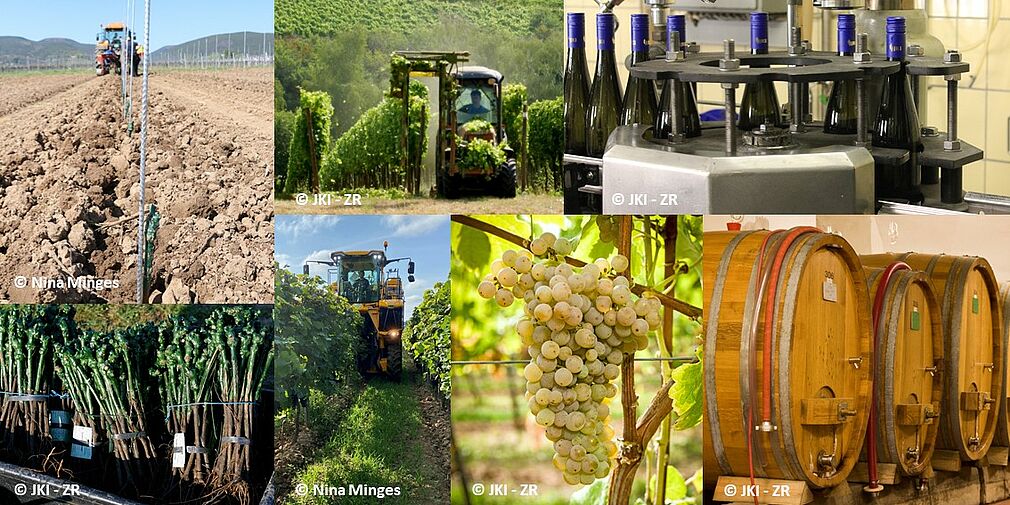Inhalt: Project details
Duration
01.2023 – 12.2025
Contact person
Dr. Oliver Trapp (ZR)
Tel: +49 (0)6345 41 118
oliver.trapp@julius-kuehn.de
JKI Project team
Institute for Grapevine
Breeding (ZR)
Institute for Strategies and
Technology Assessment (SF)
The project "CaberNET" is funded by the Federal Ministry of Food and Agriculture as part of the German Climate Protection Programme 2022.
Inhalt: Assessing the carbon footprint of wine production in Germany to identify additional climate change mitigation potentials in viticulture (CaberNET)
Background:
The agricultural sector causes approximately 10-12% of global anthropogenic greenhouse gas (GHG) emissions and thus contributes substantially to climate change. Despite its small share of the total agricultural land in Germany, the wine sector also has an important share in the climate impact of agriculture. At the same time, viticulture, like the entire agricultural sector, is increasingly suffering from the consequences of climate change. In particular, increasing extreme weather events are causing more and more problems for viticulture. Reducing GHG emissions in viticulture is thus in the farmers' own interest; what they urgently lack, however, is reliable information and decision support regarding effective GHG mitigation potentials and corresponding carbon sequestration potentials.
Objectives:
Therefore, the CaberNET project aims at assessing the CO2 footprint of wine production by means of life cycle assessment in different growing regions in Germany in order to develop additional climate change mitigation potentials in viticulture. The CO2 footprint describes the sum of GHG emissions in CO2 equivalents per liter or bottle of wine. By quantifying the GHG sources and the comparative evaluation of different origins, grape varieties, qualities and cultivation methods (organic & conventional), possible levers for the effective use of climate protection potentials are identified and evaluated. The knowledge gained on suitable climate protection measures in viticulture and corresponding recommendations for action will be transferred to agricultural practice via specialist events and publications.


